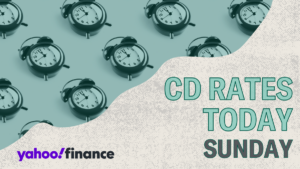An In-Depth Guide to CD Rates: Unlocking the Best Offers
When it comes to securing your savings, Certificates of Deposit (CDs) offer a unique and often lucrative way to grow your money over time. However, CD rates can differ dramatically across financial institutions, making it essential to shop around to ensure you’re getting the best deal. Here’s a comprehensive look at the current landscape of CD rates and valuable insights into navigating your options.
The Current State of CD Rates
Gone are the days when longer-term CDs reliably boasted higher interest rates. Interestingly, in today’s fluctuating economic environment, this trend appears to be reversing. For savvy investors, this means potential opportunities to lock in better rates with shorter terms.
As of now, the standout offer comes from NexBank, featuring a remarkable 4.40% APY on its one-year CD. Nevertheless, be prepared for the entry barrier, as this account requires a minimum opening deposit of $25,000.
Top CD Rates from Our Trusted Partners
To get the most out of your investment, it’s essential to compare rates from different institutions. Below are some of the best CD rates currently available through our verified partners:
- 1-Year CD at 4.40% APY with NexBank (Minimum Deposit: $25,000)
- Other competitive offers from various nationwide banks and credit unions
Understanding How APY Impacts Your Earnings
The annual percentage yield (APY) is crucial for understanding how much interest you’ll earn on your deposit. It takes into account both the base interest rate and the frequency with which interest compounds—typically daily or monthly for CDs.
For example, if you invest $1,000 in a one-year CD with a 1.81% APY, compounding monthly, your balance at the end of the term would total approximately $1,018.25. In contrast, opting for a one-year CD at 4% APY would yield a balance of about $1,040.74, meaning you’d earn $40.74 in interest.
The effect of scale can be significant. If you invest $10,000 in that same 4% APY CD, the amount you would earn in interest would grow to $407.42, bringing your total to $10,407.42 by maturity.
Types of CDs to Consider
While interest rates often top the list of considerations when selecting a CD, various types offer distinct benefits that may align better with your financial goals. Here’s a closer look at some common options beyond the traditional CD:
-
Bump-up CD: This innovative product allows you to request a higher interest rate if your bank’s rates increase during the term of your CD. Keep in mind that this option is generally limited to one request.
-
No-penalty CD: Also referred to as a liquid CD, this option allows you to withdraw your funds before maturity without facing a penalty. This flexibility can be crucial in times of financial uncertainty.
-
Jumbo CD: Typically requiring a minimum deposit of $100,000 or more, jumbo CDs usually offer a higher interest rate. However, the variance between traditional and jumbo rates can be minimal in today’s market, so do your homework.
- Brokered CD: These are obtained through brokerage firms rather than directly from a bank. Although they can sometimes provide higher rates, it’s important to assess the risks, as brokered CDs may not carry FDIC insurance.
Conclusion
Smart investing is all about making informed choices. By exploring different CD options and understanding how the rates impact your earnings, you can position yourself to maximize your returns. At Extreme Investor Network, we’re committed to providing you with the latest information and tools to navigate the financial landscape, ensuring that you have everything you need to make informed decisions for your future. Dive into our resources to learn more about securing the best CD rates tailored to your financial goals.

